Closing the confidence gap: What Sierra Leone’s Talent Search taught us
By Antonia Howard and Kate Krontiris
Despite overwhelming talent, women in music still face deep-rooted barriers to participation, especially in Africa. Drawing from a national talent competition & new data this piece examines the confidence gap, cultural norms and structural inequalities keeping women out, and the bold initiatives working to change that.
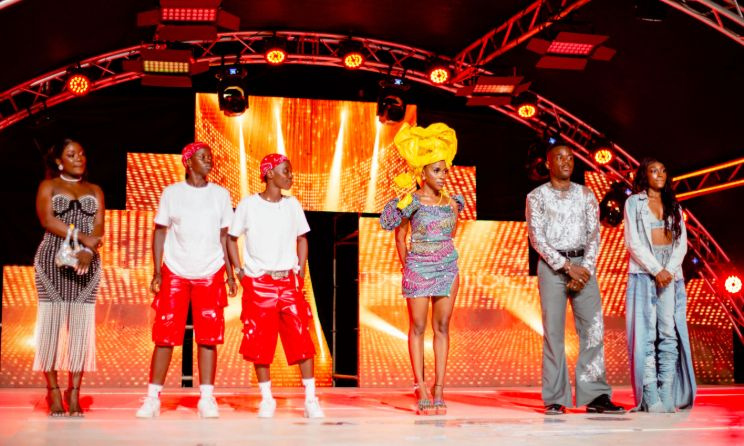 Top 5 acts from Sierra Leone Talent Search: Four singers and a female duo dance crew.
Top 5 acts from Sierra Leone Talent Search: Four singers and a female duo dance crew.
When Sierra Leone Talent Search opened its doors in March this year, it set out to uncover the next generation of music stars. Organised by Cribs International, a company known for nurturing emerging talent, the show promised more than entertainment: it offered the promise of transformation. With a cash prize of NLe 300 000 (about $13 200), mentorship from leading African producers, a record deal, and professional management on the line, the stakes were undeniably high.
As the two female judges in the competition, we witnessed something deeper beneath the surface.
Despite an open and widely publicised call, the overwhelming majority of contestants who showed up to audition were male. It is worth noting that there were efforts made to change this. Arguably Sierra Leone’s most popular female Afrobeats singers (and Cribs artist) Boii, posted a video ahead of the auditions encouraging more women to apply. In it, she offered a 20 percent discount on form fees for females, urging them to take the leap and sign up.
During the auditions, the gap was hard to ignore; the energy, volume, and confidence in the room leaned heavily in one direction. But as we moved through the rounds, listening closely for skill, artistry, and true talent, a clear pattern began to emerge: many of the strongest performers were among the few women who had entered the competition.
From the quarterfinals onward, this became impossible to miss. Eight of the ten finalists were women. At the semi-finals, four of the top five were women. Last weekend’s final saw women in two out of three top winners. This outcome did not reflect the numbers we had at the start, but it was this contrast between representation and result that raised important questions for us: Why, when the talent is clearly there, does it take so much more for women and girls to step forward?
For the past three years, Telem Uncommon Sounds (a music collective founded by Rosaline Iyabode Johnson, Kate Krontiris, and Solomon Fatoma in Sierra Leone) has been organising songwriting retreats, performance series, music masterclasses and exchange programmes aimed at nurturing original, experimental, world-class sounds from Sierra Leone’s creative sector. In spite of efforts to reach gender parity in each activity, the same pattern ultimately takes hold: men overwhelmingly audition, participate, and get the performance and travel opportunities we organise.
To create more intentional space for women, Telem has also organised a women’s songwriting circle focused on shared learning and peer support, along with dedicated music training intensives for women. The most recent intensive, held in June 2025, reaffirmed what we witnessed during the Talent Search: the talent was undeniable, and yet many participants struggled to trust their own creative voice.
These women demonstrated remarkable skill, strong command of vocal harmony, compelling lyrical ideas, and a spirit of creative curiosity that often matters more than formal training. Many were also instrumentalists or aspiring ones, and they eagerly sought out additional free, online resources to deepen their practice. As in so many other spaces in life, we also saw women holding back, even when they had every reason to lead.
The confidence gap among women is glaring, not due to a lack of ability, but due to two key challenges: (1) a lack of key institutional pillars of a thriving creative sector; and (2) deeply ingrained cultural norms and internalised doubt. Both have deep roots.
Structural gaps in our creative sector
When we look at thriving creative societies around the world, we tend to see four core pillars to ensure that outcome: institutions of learning and training in the arts, purpose-built performance and exhibition spaces, the protection of intellectual property, and sources of financing (grants, residencies, fellowships) for new artistic creation. Sierra Leone needs all of these things, and it is not surprising that their absence makes it hard for anybody to see a productive future for themselves as creatives. In some way, you have to have almost an unreal confidence in yourself that you can persevere and be successful, even in spite of the context. Chimamanda Ngozie Adichie's award winning book Purple Hibiscus was rejected 25 times before it was finally published - talk about having unreal confidence to persevere! But that is the level required of artists in our creative sector, and even more so for women (who often also have caretaking and family responsibilities beyond those of their male peers).
Cultural Norms
In many of our schools, performance and participation are still shaped by outdated gender expectations. Girls are taught to be humble, deferential, and quiet. Meanwhile, boys are encouraged to take up space and speak, even when their skills are still developing. In many homes, boys are empowered to be bold, even in error, while girls are not encouraged to simply try. Girls are rarely taught how to handle criticism, or how to build self-confidence and resilience. This early conditioning shows up years later: in auditions, on stage, in meetings, in interviews, in life.
And for women in music, the barriers extend beyond confidence. One of the most painful and pervasive realities in the industry is the prevalence of sexual harassment, particularly in the producer-artist relationship. Because many emerging female artists rely on male producers to access instrumental backing for their songs, these one-on-one studio spaces too often become sites of exploitation. The imbalance of power - technical, professional, and often economic - creates conditions in which women are routinely pressured for sexual favours in exchange for creative collaboration or career advancement.
This dynamic is widely known, widely experienced, and rarely addressed openly. To ignore it is to misunderstand the full picture of why so many talented women opt out, hold back, or leave the industry entirely.
So this is not just a story about one competition. It is about what happens when confidence, access, and safety are unevenly distributed.
This is not a Sierra Leone problem, this is a global problem, where the gender imbalance in the music industry remains stark. A study from the USC Annenberg Inclusion Initiative examining Billboard Hot 100 charts from 2012 to 2019 found that women accounted for fewer than 23% of artists, just 12.6% of songwriters, and under 2% of producers. UNESCO data also indicates that only about 3% of music producers globally are female, and in Africa, the figures are likely even lower due to structural and cultural barriers.
The issue is not that women aren’t creating. We are. But too often, we’re doing so in private, in silos, or with little validation that our work belongs in the public eye. And when we do step forward, we are frequently met with scrutiny our male counterparts rarely face, not just from the industry, but from society at large.
The good news is: when women do show up, we rise. We win. But the work ahead lies in creating environments that don’t just reward the ones who show up, but actively encourage them to do so in the first place. Confidence and talent can’t thrive in isolation; they require infrastructure, community, and clear signals that women are not only welcome, but central to the creative future of the continent.
There is a pressing need for talent development programmes tailored specifically to women and girls, such as the songwriting intensive led by Telem Uncommon Sounds, which extend beyond technical instruction to foster self-confidence, creative leadership, and resilience in navigating cultural and structural barriers.
An example comes from Nigerian artist Tems, who recently launched the Leading Vibe Initiative, a pan-African programme aimed at empowering young women in music through mentorship, tools, and access to industry networks. Inspired by her own experience as a self-taught artist navigating a male-dominated field, Tems created the platform to offer the kind of support she once needed. Its mission is simple but powerful: to help women find their voices, step into their power, and shape the future of music in Africa.
Alicia Keys has also championed similar work with women through her organization She Is the Music, which partners with Femme House to train female music producers via the She Is the Producer programme. Meanwhile, high quality free online learning platforms such as GrammyGo from the Recording Academy and Berklee College of Music on Coursera offer accessible resources for musicians of all genders to build their skills and strengthen their creative practice.
This is the kind of intentional, structural investment needed across the continent. We know from all kinds of studies that societies are better off when women are actively involved, and that includes our cultural and creative industries. Overall, a group’s collective intelligence is higher when there are women (HBR). Women invest the majority of their income back into their families. And when a woman has a say in her family’s budget, she tends to prioritize things like healthcare, education, and nutrition - all the building blocks of a healthy society.
So, we need to do more.
In our schools and homes, girls must be encouraged to speak, perform, question, and take creative risks, without fear of shame or judgment. Confidence is a muscle, and too often, girls are taught to shrink before they’ve had the chance to stretch. We must raise daughters who understand that their creative instincts are valid. That they can try, they can experiment. That they can lead.
In our creative industries, we must confront the ways in which we continue to replicate exclusion.
At the policy level, Sierra Leone is on the cusp of long-awaited reforms that could transform the creative economy. The upcoming modernisation of our copyright framework, including the establishment of a collective management organisation (CMO), will finally allow artists to earn royalties from the use of their music both locally and abroad. These reforms will open doors to global markets and revenue streams, creating what could be considered a form of creative remittances, income from culture and creativity that strengthens the national economy.
But then the question becomes: do we really want to leave half that money on the table? Because that’s what happens when we fail to invest in women’s participation in the music industry.
Globally, we’ve seen what happens when women are supported to build creative empires. Beyoncé’s music catalogue alone is reportedly worth over 300 million dollars. Country music legend Dolly Parton earns an estimated 8 million dollars annually from her catalogue, which she owns almost entirely. These women have headlined record-breaking tours, created thousands of jobs, and contributed billions to the global economy. Of course, no one becomes a Beyoncé or a Dolly overnight, but the point is clear: creativity is good for the economy, and women artists can make a lot of money.
Beyond the numbers, women creatives are essential for the world we’re stepping into. Research on sustainable development suggests that our future will be increasingly shaped by conflict, climate crises and social fragmentation. In such times, creative thinking isn’t a luxury - it’s a survival skill. Artists help societies imagine, adapt, and rebuild. They offer moral imagination and vision when institutions fall short. So if we are not fully activating the creative potential of half our population, we are not only limiting individual opportunity, we are undercutting national resilience.
Looking ahead, the future of live entertainment, particularly music tourism, is booming. Younger generations, particularly Millennials and Gen Zs, are driving demand for experiences that connect them to culture, identity and place. Festivals, performances and destination events are growing rapidly, contributing to local economic growth in hospitality and beyond. This is a moment to intentionally position women as cultural ambassadors and creators, and to harness their energy for national development.
So as we conclude the Talent Search in Freetown, we’re proud of what this season has revealed. And we’re also reflective: the next great artist may already be out there, writing in her bedroom, or humming a melody she’s not sure anyone wants to hear. The work ahead lies in creating spaces where she knows she belongs.
Antonia Howard is a communications and media professional based in Sierra Leone with over a decade of experience in journalism and storytelling. She has produced and presented current affairs content locally, and internationally for the BBC. She currently hosts Honestly Speaking, a podcast exploring the social dynamics shaping Sierra Leonean life. Antonia is the co-founder of Black Lion Production, a creative agency specialising in strategic communications and digital storytelling. With a background in music and performance, she brings a passion for the arts to her work, connecting creativity and communication to drive meaningful change.
Kate Krontiris is an American singer-songwriter whose folk orchestral sounds blend layered harmonies with honest lyrics, often infused with Afrobeats, brass band, and funk influences. She co-founded the music collective Telem Uncommon Sounds in Sierra Leone and is currently working on her debut EP of “music rituals,” set for release in late 2025. A 2023–2025 Global Musicians Workshop fellow, Kate has performed at venues such as the Gnaoua and World Music Festival in Morocco and Jazz at Lincoln Center in New York City. With over 20 years of experience in facilitation and organizational development, she also co-founded the Facilitation Leadership Lab and has consulted for institutions including Google, Facebook, and the U.S. Digital Service under President Obama. Kate holds degrees from Columbia, Harvard, and MIT, and lives with her husband David Sengeh and their daughters in Freetown, Sierra Leone.
The views expressed in this article are those of the authors and do not necessarily reflect the views of the publication.












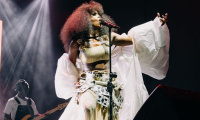









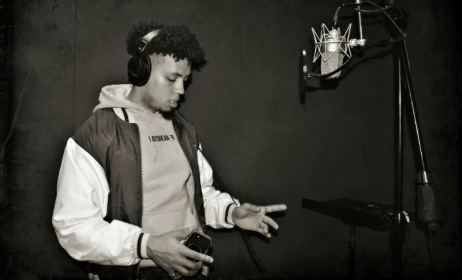



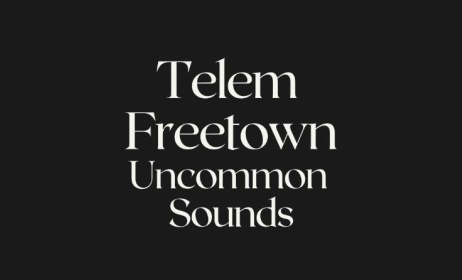
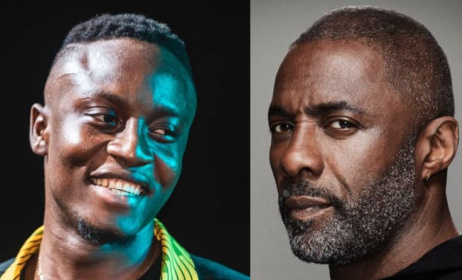


Comments
Log in or register to post comments